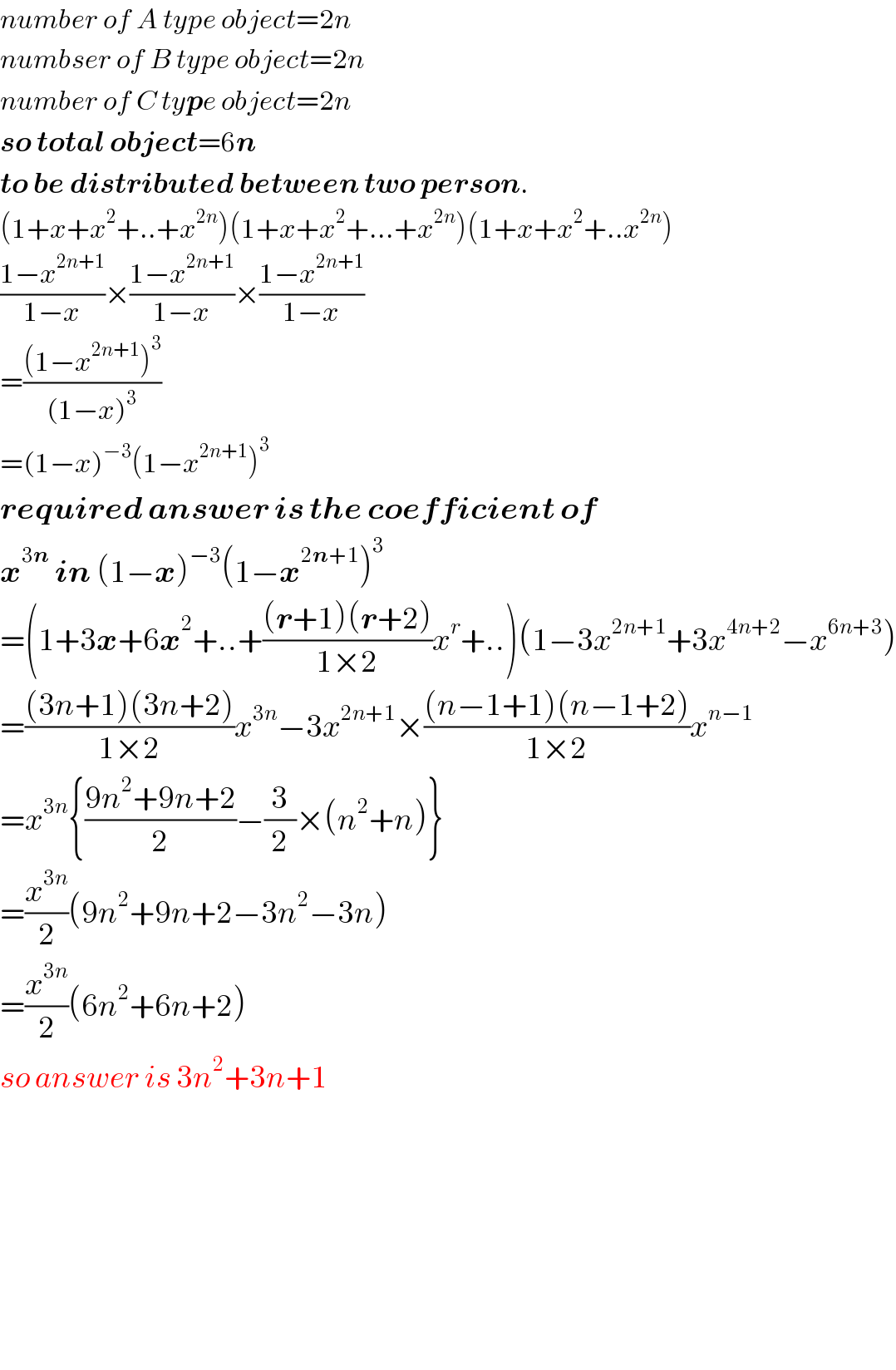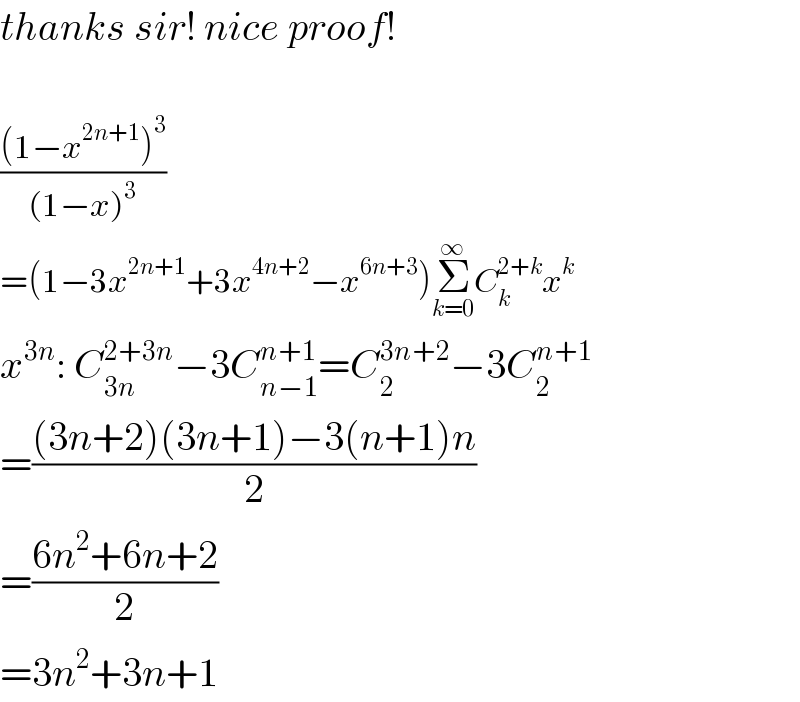
Question and Answers Forum
Previous in Matrices and Determinants Next in Matrices and Determinants
Question Number 57044 by mr W last updated on 29/Mar/19

Commented by mr W last updated on 29/Mar/19

Answered by tanmay.chaudhury50@gmail.com last updated on 29/Mar/19

Commented by mr W last updated on 30/Mar/19

Commented by tanmay.chaudhury50@gmail.com last updated on 30/Mar/19

